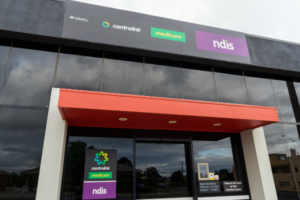National Disability Insurance Scheme (NDIS) participants will have more support to make their own decisions about their NDIS journey with the release of the new Supported Decision-Making Policy.
Read the transcript for the ‘supported decision making’ video.
Supported decision-making refers to helping and guiding people to make decisions to remain in control of their lives. It involves building the skills and knowledge of NDIS participants, their friends, families, carers, peers and professionals. Everyone uses supported decision-making and needs support with decisions at different times. How much and what kind of support a person needs to make decisions can change depending on the circumstance.
Supported Decision-Making Policy results from one of the National Disability Insurance Agency’s (NDIA) co-design projects. It aims to support and empower participants to take control of this part of their lives.
It was developed in close collaboration with people with disability who will benefit most from supported decision-making, including those with complex communication access needs, from culturally and linguistically diverse backgrounds, people with an intellectual or psychosocial disability, or who identify as LGBTQIA+ and First Nations.
The policy covers the following:
- The role of the NDIA and NDIS in supporting people with disability to make decisions
- How the NDIA can help children, young people, and adults with disability understand their rights to make decisions and support them in making decisions
- The role of nominees, guardians, family members and others in supporting people with disability to make decisions about the NDIS.
The implementation plan has five key themes for the NDIA to action, these are:
- Increase opportunities for participants to make decisions
- Support participants in developing skills and knowledge
- Build skills and knowledge of decision supporters
- Build skills and knowledge of NDIA staff and partners
- Strengthen the supported decision-making approach in appointing, operating and reviewing nominees.
Minister for the NDIS Bill Shorten said this policy leveraged the disability community’s expertise to co-design policy that will empower people with disabilities to make decisions about their own lives.
“People with disability have the right to make their own decisions and have those decisions respected,” Mr Shorten said.
“The Supported Decision-Making Policy takes a rights-based approach to assist participants in making decisions in the NDIS while building the skills and knowledge of decision supporters, NDIA staff and partners.”
The NDIA also partnered with Inclusion Australia, the national peak body representing people with intellectual disabilities, to lead the co-design sessions with people with disability.
Inclusion Australia CEO Catherine McAlpine said the feedback would build a strong and shared understanding of challenges faced and how suggested recommendations and solutions may be appropriately integrated into the NDIS.
“Supporting people with disability to make decisions is a shared, system-wide responsibility between people, organisations and levels of government. While the policy will uplift supported decision making for NDIS-related decisions, all levels of government have a key role in ensuring people with disability have choice and control over all the decisions in their lives,” Ms McAlpine said.
NDIS participant Luke Nelson co-facilitated the sessions, helping attendees feel comfortable expressing their thoughts.
“I think this policy will give people with disability a chance to know that supported decision making is a real thing, that it can be delivered and that the NDIA is willing to work with people with disability to make them feel included,” he said.
Read the Supported Decision-Making Policy here.




